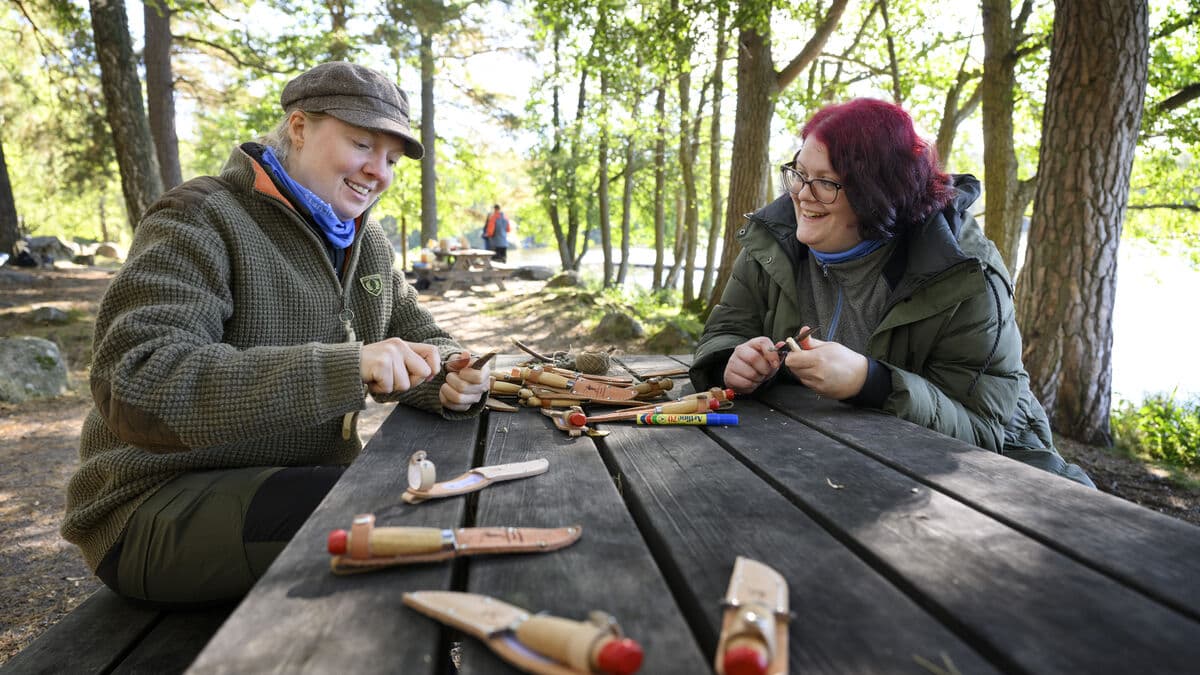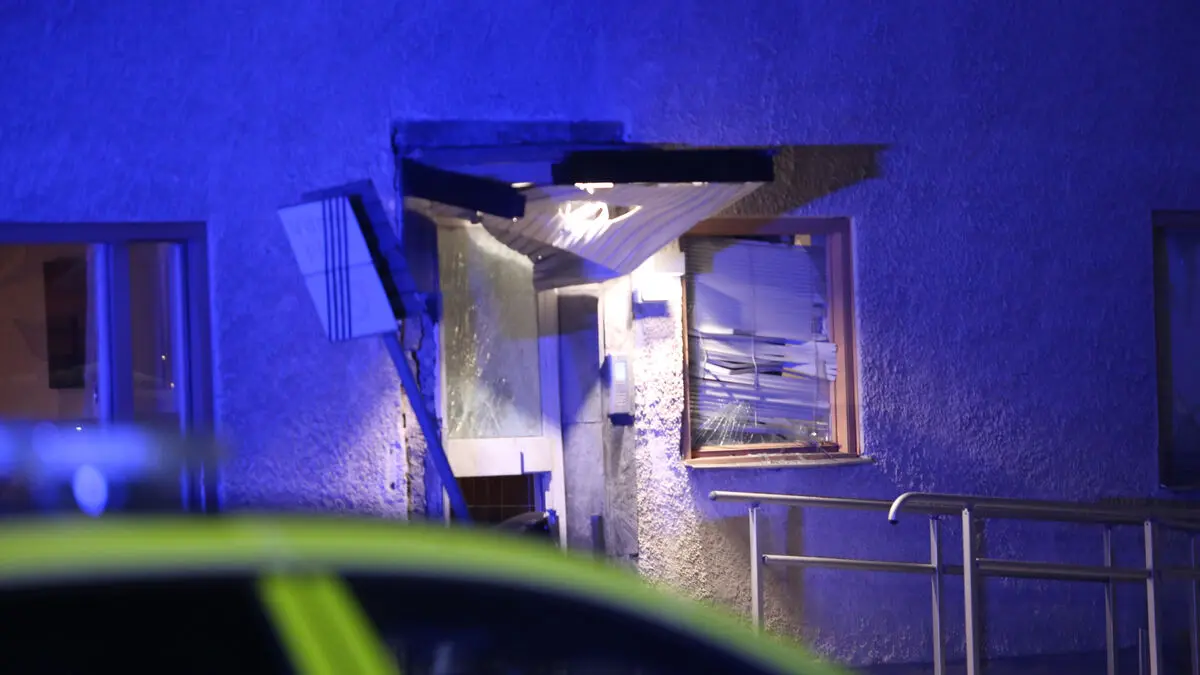Water glitters in the autumn sun and bonfire smoke spreads and finds its way into the clothes. Suddenly, happy shouts are heard from two women sitting by the campfire. They have managed to make a fire with the help of a firesteel.
In the Fjällnora nature reserve outside Uppsala, about twenty people gather for two days to learn some basic things about outdoor life. Those who learn are a mixed group with employees from, among other things, health centers, social psychiatry and forensic psychiatry around the country. The purpose is that they in turn will use the method as a tool against mental illness.
Hamburgers are cooked over an open fire, firewood is chopped and teaching takes place between tree trunks. One of the people in charge is Mats Eklycke, operations and training manager at Friluftsfrämjandet, Region Mälardalen. His knee-reinforced pants with many pockets suggest that it's not the first time he's in nature.
Many are a little afraid of nature, we try to show that it's quite simple, he says.
Recovery and activity
The method being taught is called "Häng med oss ut" and has been developed by Friluftsfrämjandet based on an idea by occupational therapist Therese Rosenkvist. It is based on peer support, recovery, the importance of activity for health and the positive effects of nature. Friluftsfrämjandet acts as a link and educates those who in their profession meet people with mental illness.
Jennie Fylking is one of those who has received help through the method. After struggling with depression for 13 years, she was, as she describes it, a prisoner in her own home. She wanted to but couldn't get out. The turning point came when her housing support worker got her to a nature meeting.
I lived as if in a vacuum. I wanted nothing else than to get out of the house and meet others, but it didn't work. I dreamed of having a time to pass, a context, she says.
It's been three years since the first meeting in the forest. Soon, the meetings became a monthly highlight. Now she is herself a support leader and describes that she feels much better and works at a social work cooperative.
Now my life has a direction and a meaning. "Häng med oss ut" has opened so many doors, not least mentally, says Jennie Fylking.
Should be simple
A basis for the method is low thresholds. It should be easy to follow - "outdoor life all inclusive". Anxiety and severe depression make the step out the door impossible.
Sometimes, activities can pick up participants from home to facilitate so they can join. The leaders bring coffee and other things that are needed so it doesn't become an obstacle for the individual, says Josefine Meyerson, one of the leaders who also works on a research project at Uppsala University where the method is being evaluated.
More and more research supports that staying in natural environments is good for us. Studies point to that it reduces negative feelings and stress at the same time as it contributes to mental recovery and increased performance.
Those of us who work with this have experience that it's good for the individuals. But to get the decision-makers on board, it's more powerful with scientific evidence, says Josefine Mayerson.
Saved my life
Frida Öhman is another one who experiences group meetings in nature as crucial. Four years ago, life looked completely different.
I was full-time sick leave and had been hospitalized in psychiatry four times in a year when I started attending group meetings. The first time I had a lot of anxiety, but everyone was so kind and permissive. You can come just as you are.
I would say that nature has saved my life, she says.
Today, she is also a support leader, the times she wants and feels good. Both Jennie Fylking and Frida Öhman emphasize the importance of the meetings being so permissive. Unlike many other contexts, no questions are asked that can feel tough and difficult to answer.
A question about what you work with or study can be tough. "I've been working on taking a shower for three days", it's not fun to say, says Frida Öhman.
Mats Eklycke laughs a little when he tells about the positive response he gets after the training.
It can sound like revival meetings, but it's fantastic to see what impact nature has on conversation and community, he says.
The meetings can include a short walk, a coffee or a meal. It doesn't have to be in a nature reserve, a park is also fine. For Jennie Fylking, the change is clear.
Getting to come out and meet people, no matter how you feel, without any demands being made, is priceless. The silence in the forest is completely different from the one in an apartment, she says.
"Häng med oss ut" started as a collaboration between social psychiatry and Friluftsfrämjandet's local branch in Sjöbo.
The "Häng med oss ut" method is based on recovery, peer support and the impact of nature and activity on mental and physical health.
Today, it is used in 45 different activities around the country. It is used, among other things, in social psychiatry, LSS, adult psychiatry, addiction treatment, the church, labor market initiatives, forensic psychiatry and primary care.
Friluftsfrämjandet has further trained 400 leaders and the method is based on giving treating staff knowledge and competence to create their own "Häng med oss ut" activity linked to their workplace.
The method is also based on great influence from the participants who can also train to become support leaders and leaders. The method's foundation stones are the health-promoting effects of nature, peer support, recovery and physical activity. The initiator of the method is Therese Rosenkvist, who is an occupational therapist in social psychiatry and a leader in Friluftsfrämjandet.
Source: Friluftsfrämjandet






